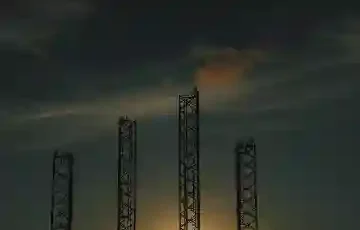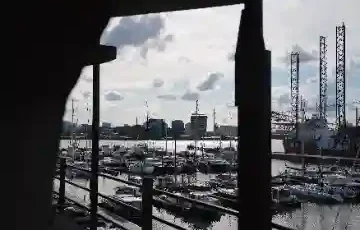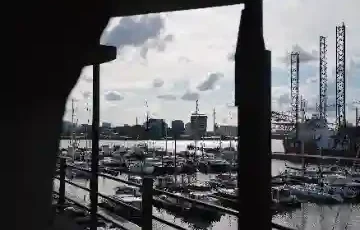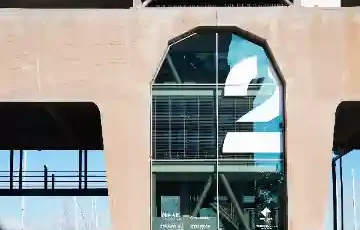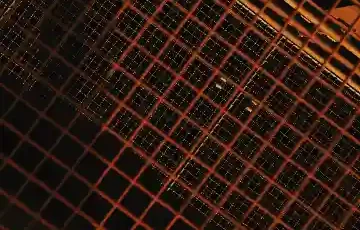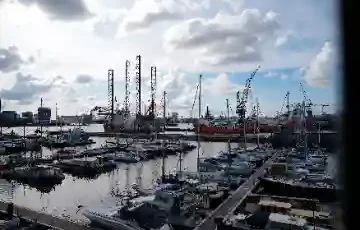Entertainment law is a specialized legal field that provides comprehensive legal protection for creators, artists and businesses in the entertainment and media industry, including film, music, television, gaming and digital platforms. This legal area combines intellectual property rights, contract law and media law to safeguard creative works and commercial interests.
Entertainment law functions as the legal framework within the creative sector. This field encompasses copyright, neighboring rights and trademark law. Moreover, Article 10 ECHR regulates freedom of expression, while the Dutch Civil Code provides protection to creators through intellectual property regulations. The entertainment industry in the Netherlands represents approximately € 2.3 billion in annual revenue, whereby 85% of creators depend on proper legal protection.
Lawyers specialized in entertainment law protect rights of performing artists, producers and broadcasters. Furthermore, they negotiate licensing agreements and distribution deals with national and international platforms such as Netflix and YouTube. An entertainment law attorney additionally advises on portrait rights, privacy and liability within media.
What core areas does entertainment law under Dutch law encompass?
Entertainment law consists of five core areas: intellectual property (copyright and neighboring rights), contract law for collaborations and licenses, media law for privacy and liability, trademark law for brand protection, and employment law for artists and performers.
Intellectual property law forms the foundation. Therefore, copyright protects creative works such as books, music, films, software and photography according to Article 1 Copyright Act. Neighboring rights guarantee performing artists control over their performances and recordings. Approximately 75% of entertainment disputes revolve around copyright issues.
Contract law regulates business arrangements within the sector. Consequently, lawyers draft collaboration agreements between producers, artists and distributors. For example: a music producer from Amsterdam concluded a deal worth € 150,000 with an international record label in 2023. However, a dispute arose over royalty percentages because the agreement contained unclear licensing provisions. A specialized attorney resolved this within six weeks through negotiations.
Media law ensures the balance between freedom of expression and privacy. Additionally, this legal area protects against unlawful (press) publications and reputational damage. Portrait rights under Article 21 Copyright Act prohibit unauthorized use of visual material. Furthermore, international regulations, advertising law and criminal law play roles in complex cases.
How does entertainment law in the Netherlands protect creative makers?
Entertainment law protects creators by granting copyright to original works, guaranteeing neighboring rights to performers, and legally enforcing contractual agreements. Moreover, it provides instruments against plagiarism, unauthorized exploitation and reputational damage.
Creators automatically obtain copyright upon creation of original works. Specifically, protection applies from the moment of creation, without registration. An author retains exclusive exploitation rights during their lifetime plus seventy years after death. Performing artists enjoy neighboring rights on their performances for fifty years after recording.
Entertainment law attorneys draft licensing agreements that regulate exploitation. Consequently, creators determine how platforms use their work and which compensation they receive. Additionally, lawyers negotiate royalty percentages with streaming services. A record company achieved market-standard rates of 12% per stream after legal intervention, for instance.
When copyright infringements occur, specialized lawyers litigate on behalf of creators. Subsequently, they claim damages and rectification. Dutch law additionally offers possibilities for preliminary attachment on unlawfully distributed content. Approximately 60% of copyright cases result in a settlement within three months.
What role does contract law play in entertainment in the Netherlands?
Contract law forms the backbone of business relationships in entertainment. Lawyers draft production agreements for film and television projects, arrange distribution deals with streaming services, and negotiate partnerships between artists and labels. Therefore, these contracts determine who exploits which rights and how revenues are divided.
Licensing agreements regulate the use of music, visual material and other creative works. Consequently, parties specify geographical restrictions, duration and compensation structure. A music publisher granted a license for synchronization rights to an advertising campaign for € 25,000, for instance. However, a dispute arose because the agreement did not specify whether online use was permitted.
Streaming platforms utilize standard contracts with specific conditions. Nevertheless, experienced lawyers negotiate more favorable provisions. Creators thereby achieve higher royalty percentages and retain more control over their work. Moreover, lawyers advise on buyout clauses and exclusivity provisions that protect long-term interests.
Do you have doubts about the conditions in your contract with a producer or streaming service? Our specialized lawyers in Amsterdam analyze your agreement and negotiate market-standard conditions that optimally protect your interests.
What are neighboring rights within entertainment according to Dutch law?
Neighboring rights are related rights that provide protection to performing artists, producers and broadcasting organizations for their performances and recordings, alongside the copyright of the original creator. These rights apply for fifty years after recording and guarantee control over use and exploitation.
Performing artists acquire neighboring rights on their interpretation or performance. Specifically, Article 2 Neighboring Rights Act protects singing, musical performances and theatrical presentations. A singer thereby retains control over how their performance is used, even when the composer possesses separate copyright. Approximately 70% of music industry income involves neighboring rights.
Producers of phonograms and videograms possess rights on their recordings. Consequently, they may control reproduction and distribution. For example: a record label invested € 80,000 in an album recording and subsequently sold exclusive streaming rights to a platform. Producer rights guaranteed that the label received 65% of streaming revenues.
Broadcasting organizations enjoy protection on their broadcasts. Additionally, they can take action against unauthorized re-broadcasts or recordings of their programs. Dutch broadcasters granted licenses worth € 15 million for international distribution of television programs in 2023. Furthermore, neighboring rights regulate digital distribution via online platforms.
How does protection against unlawful publications work under Dutch law?
Unlawful publications violate privacy, portrait rights or reputation of individuals and companies. Entertainment lawyers take action against this through civil proceedings. Article 21 Copyright Act stipulates that portrait images may not be distributed without permission. Additionally, Article 6:162 Dutch Civil Code provides protection against tortious acts in case of reputational damage.
The District Court of Amsterdam handles approximately 150 cases annually regarding unauthorized image publications. Lawyers claim rectification, removal and damages. Moreover, courts grant a publication ban within two weeks in 80% of preliminary relief proceedings. A famous artist obtained € 50,000 damages after unauthorized use of their portrait in an advertising campaign, for instance.
Social media increase the risk of unlawful publications. Nevertheless, freedom of expression does not apply absolutely. Lawyers assess whether statements constitute defamation, slander or insult according to Article 261 Criminal Code. Subsequently, they initiate civil proceedings or file criminal complaints. Approximately 65% of social media disputes end in a settlement after legal intervention.
Journalists exercise press freedom, but must respect privacy. Therefore, courts test publications against the proportionality principle. A media company published confidential information about a Dutch actor, for example. The court ruled that the private interest outweighed the journalistic interest and imposed a ban with a penalty of € 5,000 per violation.
What legal issues arise with streaming services in the Netherlands?
Streaming services require complex legal agreements regarding copyrights, licenses, territorial restrictions and compensation structures. Lawyers negotiate production contracts, sale of rights and royalty percentages with platforms such as Netflix, YouTube and Spotify.
Production contracts with streaming services specify who remains owner of intellectual property. Typically, platforms acquire worldwide distribution rights for certain periods. For example: a Dutch film producer sold exclusive rights for five years to an international platform for € 300,000. However, the producer retained merchandising rights and possibilities for theatrical release.
Licensing agreements regulate territorial restrictions and exploitation forms. Consequently, lawyers negotiate geographical areas where content becomes available. A music publisher granted streaming rights for Europe, but retained North American rights for a competitor, for instance. Additionally, contracts determine whether content is offered exclusively or non-exclusively.
Royalty structures for streaming differ per platform and genre. On average, music streaming services pay € 0.003 to € 0.006 per stream. Lawyers negotiate higher percentages for successful artists. Moreover, they establish guaranteed amounts that creators receive regardless of the number of streams. A well-known Dutch artist achieved an advance of € 100,000 plus 15% per stream.
YouTube applies advertising-based revenues through the Partner Program. Creators receive approximately 55% of advertising revenues. Nevertheless, disputes arise over copyright claims and revenue division for samples or covers. Specialized lawyers resolve these disputes through MediaMatch procedures or court interventions. Approximately 70% is resolved within eight weeks.
How does entertainment law in Dutch jurisdiction protect against plagiarism?
Plagiarism violates copyrights through substantial similarities between works without permission. Lawyers assess whether unlawful appropriation of original expression occurs. Article 13 Copyright Act protects creators against reproduction, adaptation and publication without permission. Approximately 40% of copyright cases concern alleged plagiarism in music or audiovisual productions.
Legal assessment requires comparison of melodies, harmonies, lyrics or visual compositions. Therefore, lawyers often engage musical experts. A Dutch producer initiated proceedings against a competitor who used a comparable melody line, for example. The court ruled that fifteen notes were identical and awarded € 75,000 damages plus rectification.
Preventive measures include registering works with copyright organizations such as Buma/Stemra. Consequently, evidence of earlier creation emerges. Moreover, lawyers advise on documenting creative processes through dated concept versions. In disputes, this proves timeline and originality. Approximately 85% of creators with documented creation win plagiarism cases.
International plagiarism disputes require knowledge of foreign law. Entertainment law attorneys coordinate proceedings through international networks. For instance: a Dutch producer discovered that their film concept was used in an American production. Through collaboration with American lawyers, they achieved a settlement of $ 200,000 within six months.
Do you suspect that your music, film or concept is being used unlawfully? Our entertainment law lawyers in Amsterdam investigate the case thoroughly, collect evidence and litigate when necessary to protect your copyrights and obtain damages.
What role does AI play within entertainment law according to Dutch legislation?
Artificial intelligence creates new legal questions regarding ownership rights, copyright protection of AI-generated content, and liability for infringements. Entertainment lawyers advise on the legal framework and risk management when using AI in creative productions.
AI-generated works raise questions about copyright protection. Dutch law grants copyright to human creators. Therefore, discussion arises whether AI content enjoys protection. Lawyers advise creators to document human input. For example: a graphic designer used AI tools but manually adjusted elements. Consequently, they retained copyright on the final result.
Training AI models on existing works may violate copyrights. Approximately 60% of AI developers use content without explicit permission. Entertainment lawyers litigate on behalf of creators whose work appears in datasets without permission. A Dutch photographer initiated a collective procedure against an AI platform that used 50,000 photographs, for instance. The case resulted in a settlement of € 2 million for affected photographers.
Licensing agreements for AI use specify permitted applications. Consequently, lawyers negotiate compensation when AI analyzes or adapts creative works. Music publishers grant licenses to AI platforms that generate new compositions based on existing music, for example. Standard rates amount to € 0.01 to € 0.05 per generated work.
Liability for AI infringements remains complex. Specifically, it remains unclear whether the AI developer, user or both are responsible. Lawyers establish risk management through contractual liability division. Additionally, they advise on insurance that covers AI-related damages. Approximately 30% of entertainment companies now have AI-specific liability insurance.
How do copyright organizations function within entertainment in the Netherlands?
Copyright organizations such as Buma/Stemra, Sena and Lira manage collective rights of creators. These organizations collect compensation for public performance, radio broadcast and digital exploitation. Creators register their works and receive royalties through these collective management organizations. Dutch organizations distributed € 280 million to creators in 2023.
Buma/Stemra manages music copyrights and collects compensation for commercial use. For example: restaurants, shops and radio stations pay annual licensing fees. An average restaurant pays € 450 annually for background music. Lawyers advise creators on optimal registration and division of rights between composer and lyricist.
Sena manages neighboring rights of performing artists and producers. Consequently, musicians receive compensation when their recordings are publicly broadcast. A Dutch band received € 12,000 in Sena royalties after frequent radio airplay, for instance. Approximately 65% of musicians depend on Sena income alongside live performances.
Lira manages rights of actors, directors and screenwriters in audiovisual productions. This organization collects compensation for re-broadcast and streaming of films and series. Entertainment law attorneys advise creators on contractual provisions that guarantee Lira rights. For example: an actor achieved € 8,000 additional income through Lira rights after Netflix distribution.
What legal aspects play a role in live entertainment under Dutch law?
Live entertainment includes concerts, theatrical performances, festivals and events. Lawyers draft performance contracts that specify compensation, technical facilities and cancellation conditions. An average performance contract for a well-known artist amounts to € 15,000 to € 50,000 plus 10% merchandise revenues. Additionally, lawyers arrange insurance against cancellation due to illness or force majeure.
Event permits require compliance with municipal regulations. Consequently, lawyers advise on Environmental Permits, event safety and liability. A festival organizer from Amsterdam obtained permission for 25,000 visitors after consultation with municipality and Safety Region, for instance. Lawyers drafted liability-limiting conditions that protect organizers against claims.
Merchandising rights generate substantial revenues at live events. Lawyers negotiate licenses for merchandise sales and division between artist and organizer. For example: a Dutch artist achieved € 50,000 extra through merchandise during a tour of ten performances. Contracts specified that the artist received 70% and the organizer 30%.
Sponsorship and commercial partnerships require clear contracts. Consequently, lawyers determine brand usage, exclusivity and performance obligations. A festival concluded a sponsorship deal of € 200,000 with a beverage manufacturer, for instance. However, a dispute arose over exclusive sales rights. Lawyers resolved this through reassessment of territorial rights within the festival grounds.
How do lawyers advise on privacy in entertainment in Dutch jurisdiction?
Privacy legislation protects personal privacy of artists and public. Article 10 Constitution guarantees respect for private life. Additionally, the GDPR regulates processing of personal data for ticket sales, newsletters and fan clubs. Entertainment lawyers advise on lawful data processing and consent. Approximately 55% of entertainment companies already received GDPR fines.
Portrait rights protect visual material of individuals against unauthorized use. Photographers and videographers obtain permission through model releases. For example: a photographer made backstage photos during a concert. Without permission, they published these commercially. The artist initiated proceedings and obtained € 15,000 damages plus rectification.
Social media use by artists requires diligence. Lawyers advise on privacy risks when sharing personal content. Additionally, they protect against stalking, identity theft and reputational damage. A famous artist received threatening messages via Instagram, for instance. Lawyers initiated criminal proceedings and secured the social media accounts through court orders.
Data protection for streaming and online platforms includes viewing behavior and user statistics. Lawyers draft privacy statements that guarantee GDPR compliance. Moreover, they negotiate data ownership in platform contracts. A Dutch streaming service achieved exclusive ownership of user data, which generated € 500,000 additional value for investors, for example.
What are recent developments in entertainment law according to Dutch legislation?
Recent developments include increasing regulation of streaming platforms, AI legislation for creative content, stricter privacy enforcement and new international treaties on digital copyrights. These changes require proactive legal guidance for creators and companies.
The European Digital Services Act regulates large online platforms since 2024. Consequently, streaming services must operate more transparently regarding content moderation and algorithms. Lawyers advise platforms on compliance and appeal procedures. Dutch platforms invested an average of € 200,000 in legal compliance with this legislation.
Dutch legislation regarding AI use in creative production develops rapidly. Currently, no specific legal framework exists for AI copyright. Nevertheless, lawyers prepare for legislation that requires human involvement for copyright protection. Approximately 45% of entertainment lawyers follow specialized AI rights training.
International copyright treaties such as the Beijing Treaty strengthen rights of performing artists worldwide. The Netherlands ratified this treaty in 2023. Consequently, Dutch artists enjoy better protection in countries such as the US and China. Lawyers advise on cross-border legal protection and international collection of royalties.
Collective actions against streaming platforms increase. Creators join forces to demand higher compensation. In 2024, a collective of 500 Dutch musicians initiated proceedings against a major streaming platform regarding unfair royalty distribution. Lawyers coordinate these massive procedures and negotiate collective settlements that often amount to € 5 million to € 10 million.
Do you want to proactively respond to new legislation and strengthen your position in negotiations with platforms? Our entertainment lawyers in Amsterdam advise on current developments and develop strategies that optimize your commercial interests and legal protection.



